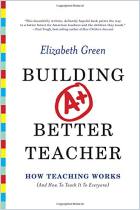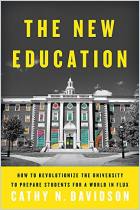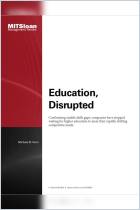
The New School
How the Information Age Will Save American Education from Itself
Read or listen offline
Recommendation
Law professor Glenn Harlan Reynolds offers compelling evidence that the American system of education – at all levels – will experience massive change in the near future. Public education in the US hasn’t changed much since the late 19th century. Yet inflation-adjusted costs – to taxpayers, parents and students – are skyrocketing. Despite massive investments in education, high school graduation rates and literacy levels are evidence of stagnating or deteriorating results. In an era of fiscal austerity, near bankrupt state and local governments, out-of-control student debt, and frustrated stakeholders, something has to give – and soon. Inevitably, some start-up enterprise soon will stumble onto the killer application for learning, and that will change everything. getAbstract recommends this short, repetitive but insightful treatise to teachers, professors, parents, students, education administrators and educational entrepreneurs.
Take-Aways
About the Author
Glenn Harlan Reynolds teaches law at the University of Tennessee. His political blog Instapundit is among the most influential and widely read American blogs.
















Comment on this summary or Начать обсуждение